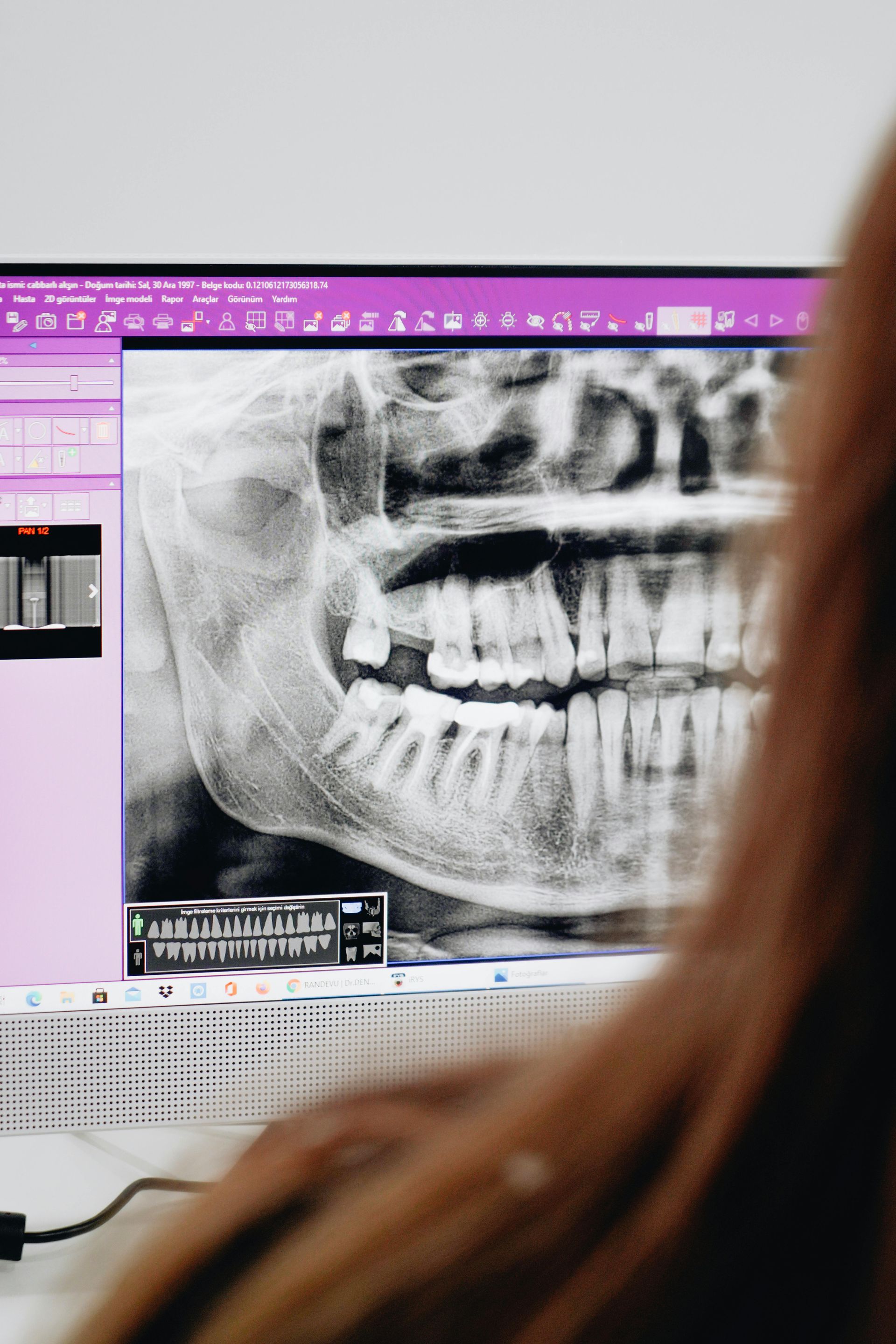CPA Firm IT Infrastructure During Partner Retirement in Missouri
by Jon Lober | NOC Technology
How Do CPA Firms in Missouri Handle IT Infrastructure When Senior Partners Retire or Sell Their Practice?
Missouri CPA firms need 12-18 months to properly transition IT infrastructure when partners retire, with costs ranging from $10,000-$30,000 for secure data migration and access control restructuring. Firms must maintain SOC 2 compliance throughout the transition while managing client file access for approximately 500-2,000 active client records per retiring partner.
How Do You Transfer Client File Access and Permissions During a Partner Buyout?
Transferring client file access requires a systematic audit and reassignment process that typically takes 60-90 days for a mid-sized Missouri CPA firm with 3-5 partners. The process starts with documenting current access levels across all systems - from tax software to document management platforms.
Most St. Louis area CPA firms discover they have 15-20 different systems requiring access updates during partner transitions Read More: Navigating Missouri and Federal Cybersecurity Regulations. These include QuickBooks hosting environments, CCH ProSystem, Thomson Reuters systems, secure file portals, and cloud storage platforms.
| Phase | Timeline | Key Actions | Cost Range |
|---|---|---|---|
| Access Audit | Weeks 1-2 | Document all system permissions | $1,500-$2,500 |
| Permission Mapping | Weeks 3-4 | Create new access hierarchy | $2,000-$3,000 |
| System Updates | Weeks 5-8 | Implement access changes | $3,000-$5,000 |
| Verification | Weeks 9-12 | Test and validate access | $1,500-$2,000 |
The retiring partner's access must be maintained for 7 years for audit purposes while removing modification rights. This creates a read-only archive that satisfies both IRS requirements and Missouri state regulations without compromising security.
What Happens to Email Archives and Historical Client Communications?
Email archives containing 10-15 years of client communications require special handling during CPA firm transitions, with most Missouri firms maintaining between 50-200 GB of email data per partner. The retiring partner's email typically gets converted to a shared mailbox accessible by designated successor partners.
Microsoft 365 environments, used by approximately 70% of Missouri CPA firms , offer litigation hold features that preserve email data while transferring ownership Read More: MS365 Premium is loaded with high-power tools. This process involves creating a dedicated archive account costing $8-12 per month for indefinite retention.
- Immediate actions: Place litigation hold on all retiring partner email accounts within 24 hours of succession announcement
- 30-day transition: Create shared mailbox structure and delegate access to continuing partners
- 60-day cleanup: Remove retiring partner from active distribution lists while maintaining archive access
- 90-day verification: Audit email routing to ensure no client communications are lost
Client communication history must remain searchable for regulatory compliance, with Missouri State Board of Accountancy requiring 5-year minimum retention for client correspondence. Firms typically export PST files ranging from 20-80 GB as offline backups stored in encrypted cloud storage.
How Do You Maintain SOC 2 Compliance During Ownership Transitions?
Maintaining SOC 2 compliance during partner transitions requires continuous monitoring and documentation, with zero tolerance for security lapses that could trigger a $25,000-$100,000 remediation audit. Missouri CPA firms serving healthcare or financial services clients face additional scrutiny during ownership changes.
The transition period creates unique compliance challenges around access control and data security Read More: Our Approach to Multilayered Cybersecurity. Firms must document every permission change, maintain audit logs for 180 days minimum , and provide evidence of secure data handling throughout the succession process.
| Requirement | Action Item | Documentation Needed | Review Frequency |
|---|---|---|---|
| Access Controls | Update user permissions matrix | Permission change logs | Weekly |
| Data Encryption | Verify encryption on all transfers | Encryption certificates | Per transfer |
| Audit Logging | Enable detailed activity tracking | System audit reports | Daily |
| Vendor Management | Update authorized contacts | Vendor agreements | Monthly |
| Incident Response | Revise escalation procedures | Updated response plan | Quarterly |
Third-party auditors typically charge $15,000-$25,000 for a SOC 2 gap assessment during ownership transitions. This investment protects against potential client loss, as 40% of enterprise clients require continuous SOC 2 compliance from their CPA firms.
Should You Migrate to Cloud Systems Before or After a Practice Sale?
Cloud migration before a practice sale increases firm valuation by an average of 15-20% according to recent Missouri CPA firm transactions, making the $30,000-$50,000 migration investment worthwhile for firms with annual revenues above $1 million . Buyers prefer cloud-based practices due to easier integration and remote management capabilities.
St. Louis area CPA firms still running on-premise servers face 60-90 day delays in closing transactions while buyers assess infrastructure modernization costs. Read More: Why should your business migrate to the cloud? Cloud-native firms close deals 30% faster with fewer contingencies related to technology infrastructure.
- Pre-sale migration advantages: Higher multiples (3.5x vs 2.8x revenue), faster due diligence, broader buyer pool including out-of-state firms
- Migration timeline: 4-6 months for complete transition including data migration, user training, and parallel run period
- Cost breakdown: $15,000-$20,000 for data migration, $10,000-$15,000 for training, $5,000-$10,000 for parallel system operation
- ROI calculation: $50,000 migration cost yields $150,000-$200,000 increased sale price for $1M revenue firm
Cloud platforms eliminate $8,000-$12,000 annual server maintenance costs and reduce IT support needs by 40% , making practices more attractive to younger buyers who expect modern infrastructure.
What's the Technology Transition Timeline for a Smooth CPA Firm Succession?
A comprehensive technology transition for CPA firm succession requires 12-18 months of structured planning and execution, with the most successful Missouri firms beginning IT planning 24 months before the anticipated retirement date. This timeline allows for systematic risk mitigation and client communication.
| Months Before Transition | Key Activities | Budget Allocation | Success Metrics |
|---|---|---|---|
| 18-15 | IT audit and gap analysis | $5,000-$8,000 | Complete system inventory |
| 15-12 | Cloud migration planning | $3,000-$5,000 | Migration roadmap approved |
| 12-9 | Begin system migrations | $15,000-$20,000 | 50% systems migrated |
| 9-6 | Access control restructuring | $5,000-$7,000 | New permissions active |
| 6-3 | Client communication prep | $2,000-$3,000 | Communication plan finalized |
| 3-0 | Final testing and handoff | $3,000-$5,000 | Zero critical issues |
| Post-transition | 30-day support period | $2,000-$3,000 | Smooth operations confirmed |
Missouri firms report that rushed transitions (under 6 months) result in 3x higher incident rates and average $15,000-$25,000 in emergency IT support costs. Read More: Better, Faster, More Reliable IT Services The most common failure point occurs at month 3 when firms discover undocumented system dependencies requiring emergency remediation.
What Are the Hidden IT Costs During CPA Partner Retirement?
Hidden IT costs during partner retirement typically add $8,000-$15,000 to the expected transition budget, with software license transfers alone accounting for $3,000-$5,000 in unexpected fees. Missouri CPA firms consistently underestimate the complexity of separating intertwined user accounts and shared licenses.
Software vendors charge transfer fees ranging from $500-$2,000 per application when changing primary account holders, and many require complete repurchasing if licenses were under the retiring partner's personal account. Tax software providers impose the highest fees, with some charging up to 25% of annual license value for ownership transfers.
- License transfer fees: $3,000-$5,000 for typical 5-partner firm software portfolio
- Data extraction costs: $2,000-$3,000 for legacy system exports requiring custom scripts
- Compliance documentation: $1,500-$2,500 for required audit trail creation
- Emergency support: $2,000-$4,000 for after-hours assistance during transition
- Training overlap: $1,500-$2,500 for temporary dual-user access during knowledge transfer
Next Steps for Missouri CPA Firms Planning Partner Transitions
Start with a comprehensive IT systems audit documenting every software license, user account, and data repository associated with the retiring partner - this typically takes 30-40 hours and costs $3,000-$5,000 when performed by qualified IT consultants. Create a detailed access matrix showing which staff members need permissions to which systems post-transition.
- Month 1: Conduct IT systems audit and create complete documentation of all technology assets and dependencies
- Month 2: Obtain written quotes from all software vendors for license transfers and account modifications
- Month 3: Develop data migration plan with specific timelines for each system transition
- Month 4: Begin client notification process with clear communication about data security measures
- Month 5: Initiate test migrations on non-critical systems to identify potential issues
- Month 6: Schedule final transition activities during lowest client activity period
Engage a Missouri-based IT managed service provider familiar with CPA firm operations at least 6 months before the planned transition date. Local providers understand Missouri regulatory requirements and can provide on-site support during critical transition periods, typically charging $150-$200 per hour for specialized succession planning services.
About NOC Technology: Based in Washington, Missouri, NOC Technology specializes in managed IT services for professional services firms including CPAs throughout the greater St. Louis area, with extensive experience in secure data migrations and compliance-focused technology transitions.







